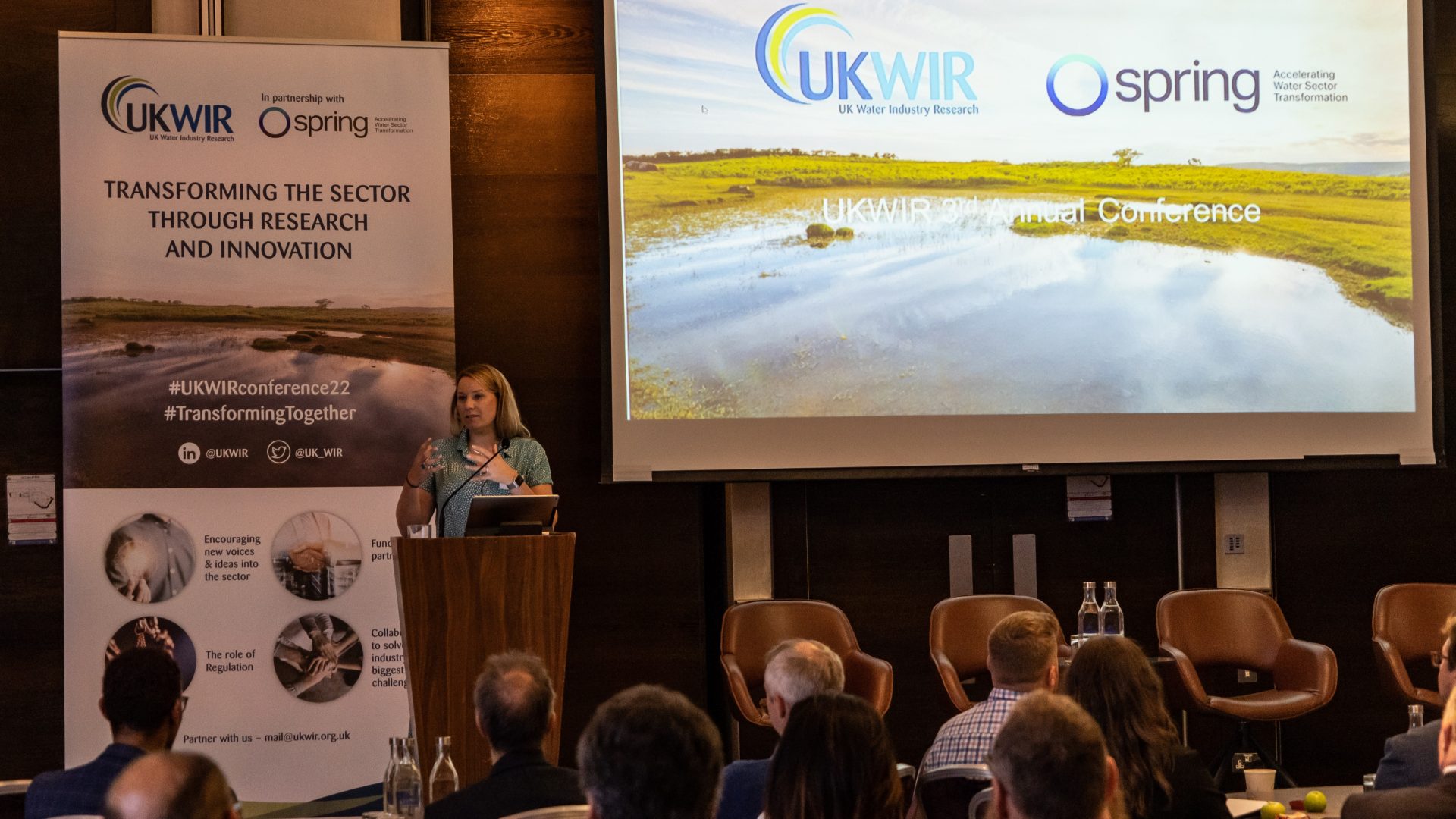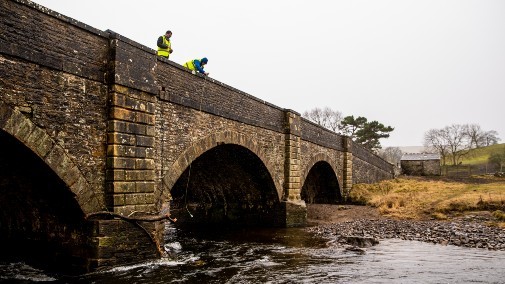Speakers from across utilities, the supply chain communities, regulators and academia addressed the ways research and innovation can transform the water sector at UKWIR’s third-annual conference.
The event, in collaboration with Spring – the water sector’s innovation centre of excellence – took place last month in London.
Chair Niki Roach, honorary vice president of the Chartered Institution of Water & Environmental Management, opened the conference by exploring how transformational research, innovation and radical collaboration can “turbo charge” a sector facing unprecedented challenges.
“The discussion feels like it’s maturing all the time. Not only was there lots of authenticity and openness in the room, it’s clear there is an appetite for even more radical collaboration,” said Roach.
“We need to really focus on bringing new voices into the sector if we want to solve problems quickly and efficiently. Avoiding duplication of effort across the sector is a challenge, but mechanisms such as Spring and UKWIR are leading the effort to close that gap.
“The sector understandably talks a lot about innovation, it’s important not to forget the role that research and development plays as part of the pipeline for innovation.”
Speakers at the event included Harry Armstrong, director of regulatory policy at Ofwat, Bob Taylor, chief executive of Portsmouth Water, Ezechi Britton, co-founder and chief executive of Code Untapped and Dr Tom Arnot, Co-director of the Water Innovation and Research Centre at the University of Bath. Discussions were focused on the most pressing issues facing the industry, including affordability for customers, encouraging new voices into the sector, funding, regulation, ensuring the health of rivers and tackling leakage.
Value of research
Paul Horton, chief executive at Future Water Association said:
“The UK is a leader on research but ideas are often developed in other countries. By supporting research and innovation across the supply chain, we can become world leaders.
“There has never been a greater need for inclusive and evidence-based research on water, stressed Horton. Population growth and urbanisation, and the climate emergency are putting unprecedented pressure on water resources.
“This makes it important to address these challenges in a systemic way, understand their scale, strengthen partnerships between public and private organisations, and foster international collaboration. Research and innovation play a crucial role in this, he said.
“Water companies, research institutes, and technology developers are realising the importance of co-producing research with the aim of developing more integrated and circular resource management and governance approaches, Horton concluded.”
Tackling leakage
The economic regulator for the water industry in England and Wales, Ofwat, has strongly pushed water companies to cut leakage over recent years, including challenging the sector to reduce leakage by at least 16% in the five-year period to 2025.
This reduction will be enabled by new technologies and techniques such as artificial intelligence, remote sensors, satellite imaging, drones, and acoustic equipment to find and fix more leaks, said Jeremy Heath, innovation manager at SES Water – who led a session on the route map to zero leakage.
“We’ve seen unprecedented focus on our ability to manage water resources. Leakage is a huge issue and one that is not easily understood by the public. It has been challenging to explain to customers how many leaks are on their side or get across the swathes of research and technologies already being used to tackle this issue.
“Perhaps the most innovative thing the water sector can do is find a way to connect with users so they understand we all have a part in protecting our shared water resources,” he added.
Ensuring affordability
“Access to safe, clean and affordable water is a human right,” said Jess Cook, project development manager leading the water poverty work programme at National Energy Action, opening a panel discussion on the challenges and opportunities of providing affordable water services and protecting vulnerable customers during the cost-of-living crisis.
The panellists spoke about the emerging technologies helping identify those customers most in need of extra support, and the increasingly diverse ways water companies can connect and communicate with customers during a crisis. They included Andy White, senior leader for social policy at Consumer Council for Water, Tanya Sephton, customer services director at South East Water and Zoe McLeod, associate at Sustainability First.
Protecting waterways
A discussion focussed on another big issue for the water sector – protecting the health of rivers, and the role research and innovation plays in protecting these critical waterways. Once again, collaboration and communication were also seen as vital elements in tackling these complex issues.
“River quality is not just about storm overflows. There needs to be a huge step change in not only how we monitor the health of our rivers, but also how we communicate these complex issues back to campaigners and communities,” said the session chair, Lila Thompson, chief executive of trade association British Water.
The panel included Matt Wheeldon, director of assets & compliance at Wessex Water and UKWIR board representative for sewerage, Mark Worsfold, president South West Institute of Water at Institute of Water and Alastair Chisholm, director of policy at CIWEM.
The future of water
UKWIR chief executive Steve Kaye said:
“As well as an excellent line-up of speakers and panellists we were also joined by a number of PhD students to share their exciting work. The extraordinary range of perspectives provided some fantastic insights and fascinating topical debates and showed this is a sector not only willing to transform but one that is hungry for change and ready for action.”
UKWIR is the collaborative research platform for the UK and Ireland water sector. The organisation facilitates, manages and delivers strategic research projects for its members, to address the key challenges they face.
To find out more about UKWIRs work, click here



